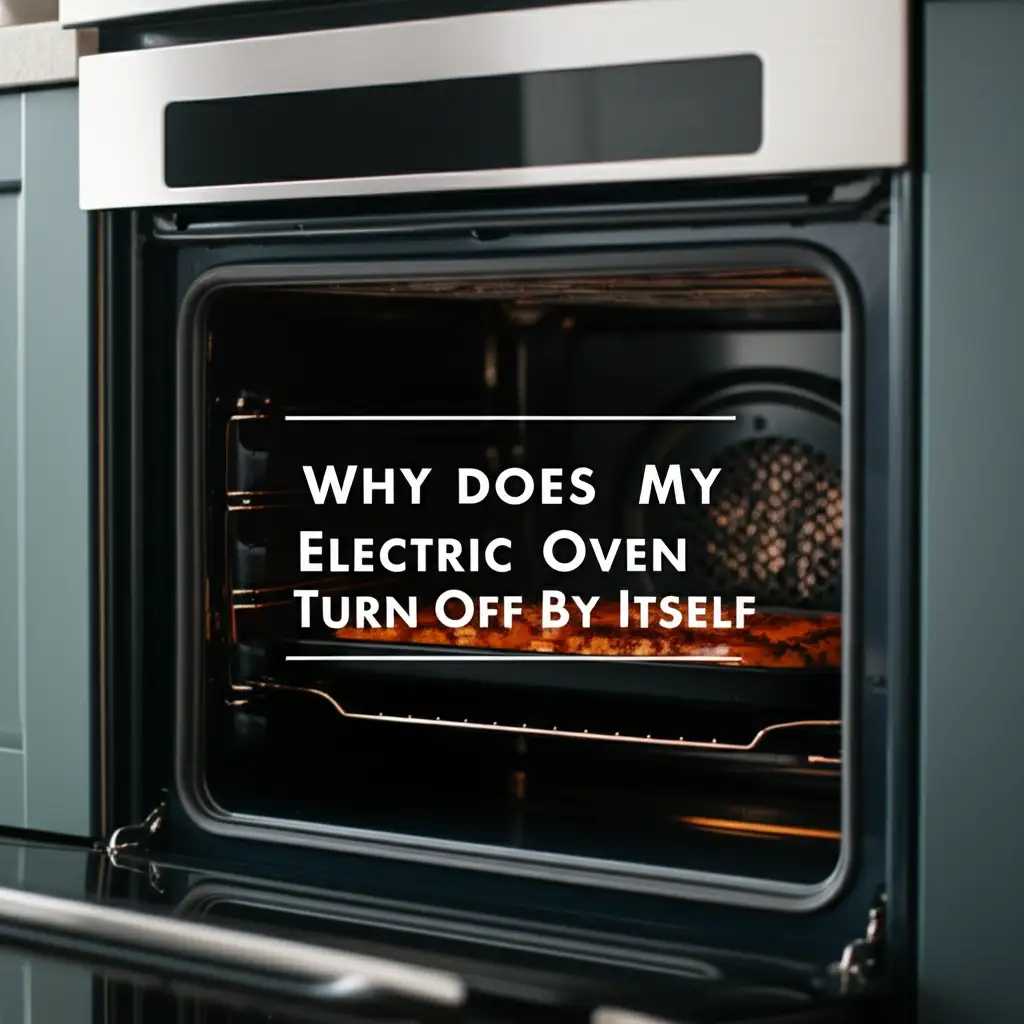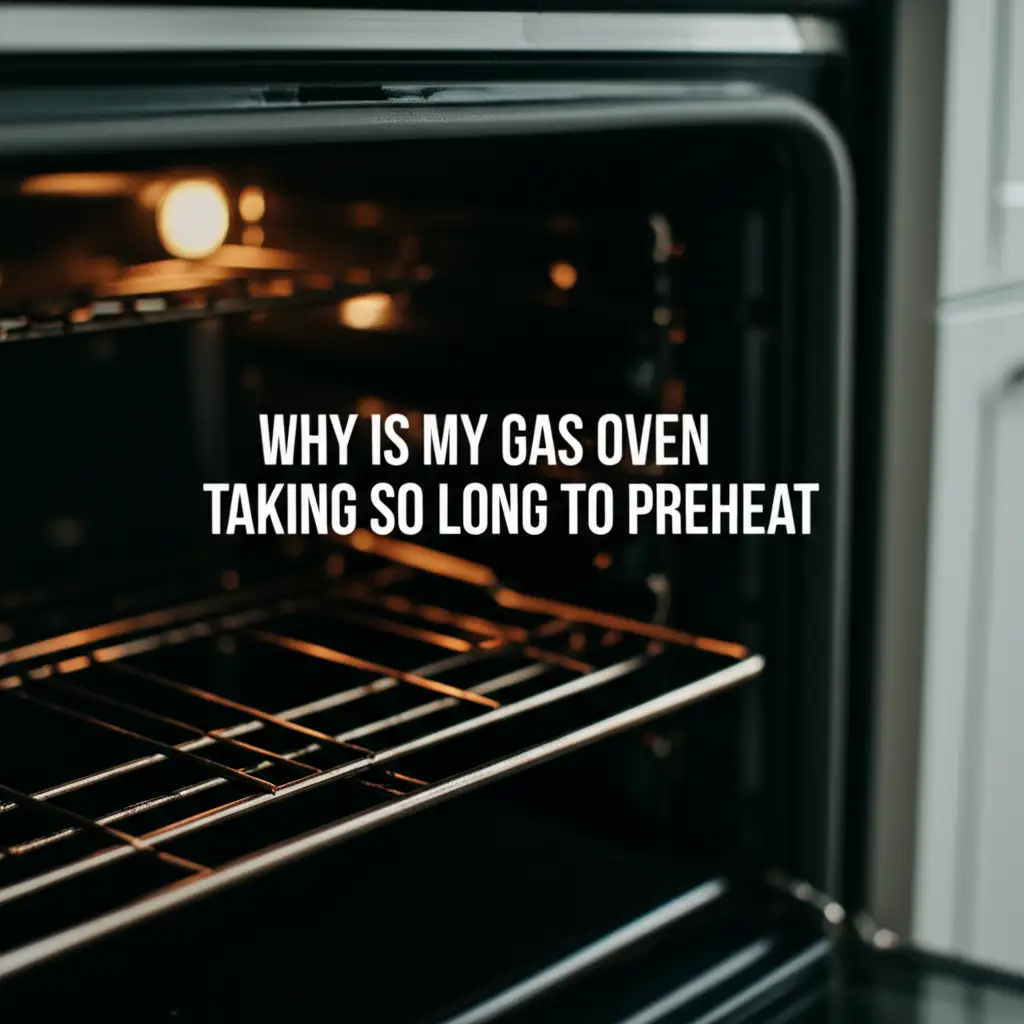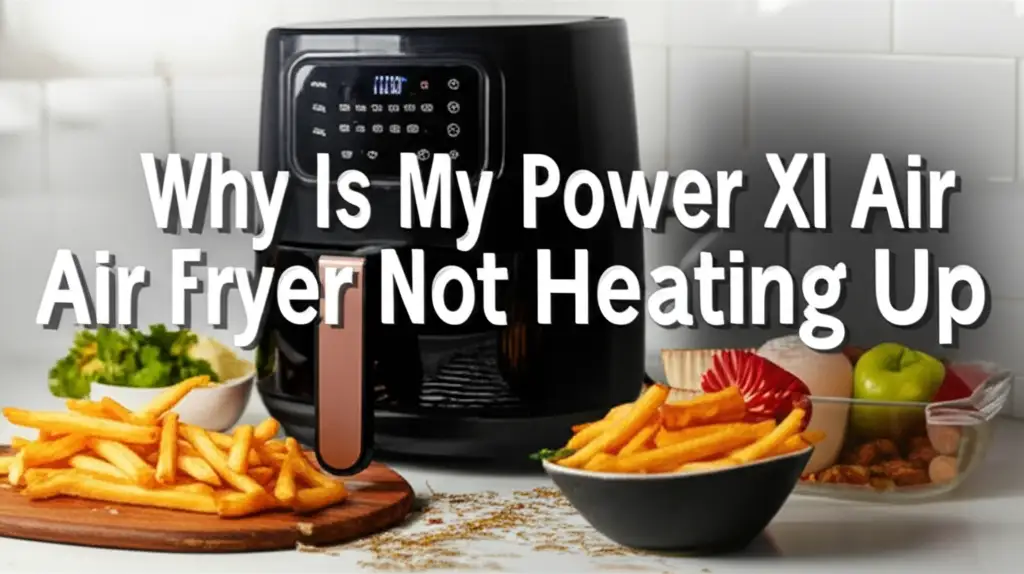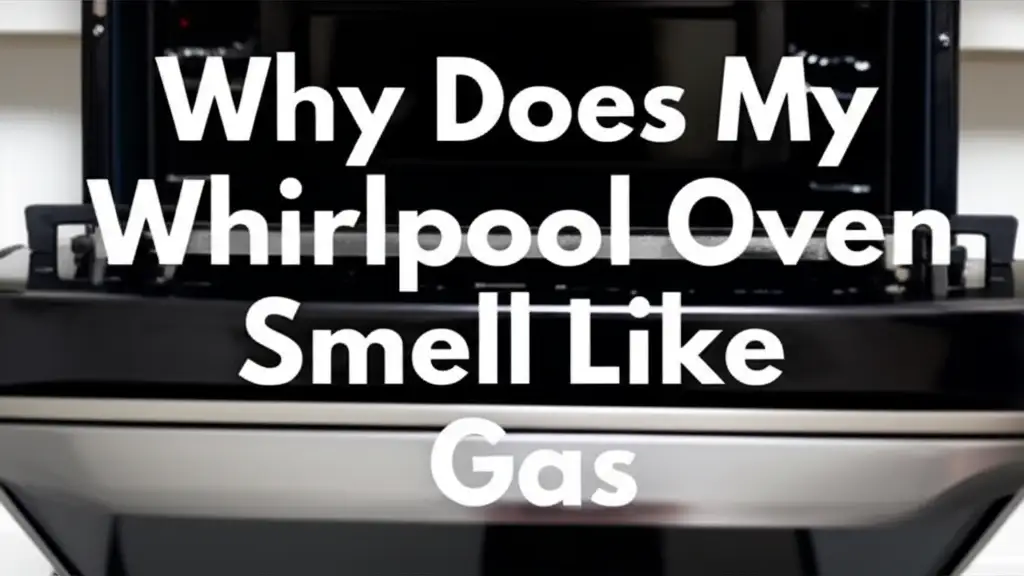· Todd Martin · Home Appliances · 18 min read
Why Does My Electric Oven Turn Off By Itself

Why Your Electric Oven Turns Off By Itself: Troubleshooting Guide
Have you ever been in the middle of baking a delicious meal, only for your electric oven to suddenly shut down? It feels incredibly frustrating. One moment, your food cooks perfectly. The next, the oven goes completely dark. I know this feeling well. An oven that turns off by itself can ruin dinner plans and cause a lot of worry.
This issue can stem from various problems, ranging from simple fixes to more complex component failures. Understanding why your electric oven turns off by itself is the first step toward finding a solution. This article will explore the common reasons behind this unexpected shutdown. We will cover power supply issues, faulty parts, sensor problems, and safety features. By the end, you will have a clear idea of how to diagnose and potentially resolve the problem. Let’s get your kitchen back in order!
Takeaway
- Check Power Supply: Confirm the circuit breaker is not tripped and the outlet is working.
- Inspect for Overheating: Ensure proper ventilation and clean internal components.
- Identify Faulty Parts: Look for issues with the temperature sensor, heating elements, or control board.
- Review Safety Features: Understand if the oven’s auto-shutoff is active or malfunctioning.
- Call a Pro: Seek expert help for complex electrical or component repairs.
Concise Answer
An electric oven turns off by itself mainly due to safety mechanisms, power supply issues, or faulty internal components. Overheating, a tripped circuit breaker, a malfunctioning temperature sensor, a bad heating element, or a damaged control board can all cause unexpected shutdowns.
Understanding Your Oven’s Safety Features
Electric ovens come with important safety features built into their design. These features protect you and your home from potential hazards. One common safety feature is an automatic shutoff. This mechanism powers down the oven under certain conditions.
For example, many ovens have a maximum runtime limit. If the oven stays on for too long, typically 12 hours or more, it will shut itself off. This prevents accidental prolonged use. It also reduces fire risks. The oven also has thermal fuses. These fuses blow if the oven gets too hot. A blown thermal fuse means the oven will not work until replaced. This protects the oven from extreme temperatures. Understanding these features helps you decide if your oven is simply following its programming. You can check your owner’s manual for specific safety limits.
Automatic Shutoff Timers
Many modern electric ovens include programmable timers. These timers allow you to set how long your oven operates. Once the set time ends, the oven turns off automatically. This feature helps prevent overcooking food. It also acts as a safety measure. Sometimes, users forget they have set this timer. I have personally done this a few times. If your oven shuts down suddenly, check if you accidentally set a cook time. This is a simple fix. Ensure the oven is set to manual operation if you do not want it to turn off by itself.
Overheat Protection Mechanisms
Overheating is a serious concern for any appliance. Electric ovens have systems to prevent this. A thermal cutoff switch is one such system. If the oven’s internal temperature exceeds a safe level, this switch activates. It cuts power to the heating elements. This prevents damage to the oven. It also prevents fire. Sometimes, poor ventilation causes overheating. Grease buildup can also trap heat inside the oven. If your oven shuts off and feels very hot, overheating might be the cause. Allowing the oven to cool completely is important. You may need to clean it thoroughly to improve airflow. For information on maintaining your oven’s cleanliness, see How to Clean Electric Oven.
Common Electrical Issues Affecting Oven Operation
Electrical problems are frequent culprits when an electric oven turns off by itself. An oven draws a large amount of power. Any instability in the electrical supply can cause it to shut down. These issues can range from simple circuit breaker trips to more complex wiring problems. It is important to approach electrical troubleshooting with caution. Always disconnect power before checking components. Safety is always first.
Tripped Circuit Breaker
The most common electrical issue is a tripped circuit breaker. Your electric oven uses a dedicated circuit. This circuit protects your home’s electrical system from overload. If the oven draws too much current, the breaker trips. This cuts power to the oven immediately. A tripped breaker looks like it is between “on” and “off” or fully “off.” I always check the breaker box first when an appliance loses power. To reset it, simply push the breaker firmly to the “off” position, then back to “on.” If the breaker trips again quickly, a more serious electrical issue exists. This could mean a faulty heating element or a short circuit within the oven itself.
Faulty Outlet or Power Cord
Less common, but still possible, is a problem with the wall outlet or the oven’s power cord. A loose connection at the outlet can cause intermittent power loss. This might make the oven turn off seemingly at random. Over time, the prongs on the power cord can also wear out. They may become loose or damaged. Inspect the power cord for any visible signs of damage, like fraying or burn marks. You should also check the outlet for charring or loose connections. If you suspect an issue with the outlet, it is best to consult a qualified electrician. Remember that proper installation is key for safety and performance; consider Does an Electric Oven Need to Be Installed by an Electrician for more details.
Internal Wiring Problems
Inside the oven, wires connect various components. These wires carry electrical current. Over time, heat and vibration can cause internal wiring to become loose or corroded. A loose wire can interrupt the power flow. This leads to the oven shutting off unexpectedly. Inspecting internal wiring requires opening the oven’s back panel. This should only be done by someone comfortable with electrical work. Look for discolored wires or loose terminals. If you find any, they need repair or replacement. This type of fix often requires professional help.
Faulty Components Causing Unexpected Shutdowns
Beyond electrical supply problems, several internal components within your electric oven can fail. When these parts malfunction, they can cause the oven to turn off randomly. These components are vital for heating and maintaining temperature. Diagnosing these specific failures can be tricky without specialized tools. However, understanding their function helps narrow down the possibilities.
Defective Temperature Sensor
The temperature sensor, or thermistor, is crucial for maintaining the oven’s set temperature. It sends readings to the control board. If this sensor is defective, it might send inaccurate readings. The control board might think the oven is too hot or too cold. This can cause the oven to shut down as a safety measure. Sometimes, a faulty sensor leads to wild temperature swings before the shutdown. You can often test a temperature sensor with a multimeter. A damaged sensor might also have visible signs of wear or burning. Replacing the temperature sensor is usually a straightforward repair. However, make sure you get the correct part for your oven model.
Malfunctioning Heating Elements
Electric ovens typically have two main heating elements: bake and broil. If either of these elements short-circuits or breaks, it can trip the circuit breaker. This causes the oven to shut off. A failing heating element might show visible signs of damage. These signs include cracks, blisters, or lack of glow during operation. Sometimes, an element might work intermittently. It could heat up for a while, then suddenly fail. This would lead to a shutdown. If you notice your oven struggles to reach temperature or heats unevenly before shutting off, a heating element could be the problem. A resistance test with a multimeter can confirm a faulty element.
Damaged Control Board
The control board is the “brain” of your electric oven. It manages all functions, including temperature regulation and element activation. A damaged or faulty control board can cause erratic behavior. This includes unexpected shutdowns. The board might suffer from power surges or general wear and tear. Signs of a failing control board include display issues, unresponsive buttons, or error codes. Sometimes, the problem is not immediately obvious. The board might send incorrect signals to other components. This can lead to safety shutdowns. Replacing a control board is often one of the more expensive repairs. It also requires careful handling. For broader issues indicating an oven nearing its end, you might find How to Tell if Your Electric Oven Is Going Out helpful.
Sensor Malfunctions and Calibration Problems
Beyond a fully defective temperature sensor, other sensor-related issues can cause an electric oven to turn off. These problems often relate to the sensor’s accuracy or its connection to the main control system. A tiny error in a sensor reading can make the oven’s “brain” react unexpectedly. This might lead to a sudden shutdown. Precision is key in an oven’s operation.
Miscalibrated Temperature Sensor
A temperature sensor does not have to be completely broken to cause issues. It can simply be miscalibrated. A miscalibrated sensor sends readings that are consistently off. If the sensor reports a much higher temperature than the actual temperature, the control board might initiate a shutdown. This happens because the board believes the oven is dangerously hot, even if it is not. This is a safety response. You might notice your food not cooking properly before the shutdown. Recalibrating a temperature sensor is sometimes possible. Check your oven’s manual for specific instructions. Some ovens allow user calibration through the control panel.
Loose or Damaged Sensor Wiring
The temperature sensor connects to the control board via wiring. Like other internal wires, these can become loose or damaged. A poor connection means intermittent signals from the sensor. The control board may lose contact with the sensor. When this happens, the oven might interpret the lack of a signal as a critical error. It will then shut down as a safety precaution. Visually inspect the sensor and its wiring. Look for any frayed wires or loose connectors. Secure any loose connections carefully. If the wires are damaged, they will need replacement. This is usually a job for a service technician.
Issues with Specific Brand Models (e.g., Samsung, GE, Frigidaire)
Some oven brands or models have known issues related to door sensors or specific control logic. For example, some ovens are designed to turn off if the door is open for too long. Others might shut down if certain internal conditions are not met. Issues with specific brand models often have their own troubleshooting steps.
- Samsung Ovens: Some Samsung models have advanced features that can be sensitive. Issues with control panels or door sensors can sometimes cause unexpected shutdowns. For specific Samsung oven concerns, you might want to review Why Does My Samsung Oven Turn Off When I Open the Door.
- GE Ovens: GE ovens, like other brands, have specific diagnostic codes or common failure points for certain components. A faulty control board or temperature sensor is a common culprit. If your GE oven turns off when you open the door, this article might help: Why Does My GE Oven Turn Off When I Open the Door.
- Frigidaire Ovens: Frigidaire models also have their unique quirks. Sensor issues or particular relay failures on the control board can lead to unexpected shutdowns. For Frigidaire-specific door-related issues, consult Why Does My Frigidaire Oven Turn Off When I Open the Door.
These specific issues highlight the importance of consulting your oven’s manual. Brand-specific forums can also provide insights.
Overheating and Ventilation Concerns
Overheating is a common reason for an electric oven to shut off automatically. Ovens generate a lot of heat, and they need proper ventilation to disperse it. When heat builds up excessively inside the appliance, safety mechanisms kick in. These mechanisms prevent damage to the oven. They also prevent potential fires. Addressing ventilation issues is crucial for consistent oven performance. I always make sure the area around my oven is clear.
Blocked Vents or Poor Airflow
Electric ovens have vents. These vents allow hot air to escape. They also draw in cooler air. If these vents become blocked, heat gets trapped inside the oven. Common culprits for blocked vents include:
- Built-up grease and food debris: Spills and splatters can accumulate. This can block the small openings over time.
- Objects placed too close to the oven: Cookbooks, towels, or even large pots can obstruct the oven’s exhaust.
- Improper installation: If the oven is pushed too far back against a wall, it may not have enough clearance.
Poor airflow makes the oven work harder to maintain temperature. This increases the risk of overheating. Regular cleaning helps keep vents clear. Ensure there is adequate space around the oven.
Self-Cleaning Cycle Overheating
The self-cleaning cycle operates at extremely high temperatures. These temperatures are much higher than normal cooking temperatures. This high heat burns off food residue. During this cycle, it is normal for the oven to get very hot. The oven’s thermal cutoff switch is more likely to activate during self-cleaning. If the oven is already dirty, the extra residue can cause even more heat buildup. This increases the chance of an automatic shutoff.
If your oven shuts off during self-cleaning, let it cool completely. Then, try cleaning it manually. For guidance on how hot an oven gets during this process, read How Hot Does an Electric Oven Get When Self-Cleaning. Sometimes, running the self-clean cycle on an already heavily soiled oven can trigger these safety shutdowns. Ensuring your oven is relatively clean before starting self-clean is a good practice. Regular cleaning, including the bottom of the oven, also helps prevent residue buildup. Check out How to Clean Bottom of Oven for tips.
Fan Malfunction
Most electric ovens have a cooling fan. This fan helps circulate air and dissipate heat from the control board and other sensitive components. If the cooling fan malfunctions or stops working, heat can accumulate quickly. This leads to component overheating. The oven’s safety features will then shut it down. A noisy fan or one that does not spin indicates a problem. Sometimes, debris can jam the fan blades. You might hear strange noises from the oven. This happens especially during or after operation. A technician can inspect and replace a faulty fan motor.
Control Board or User Error
Sometimes, the issue isn’t a broken part but a miscommunication or a simple mistake. The control board interprets all signals from sensors and user inputs. Any glitch in this system can cause the oven to react unexpectedly. User error, although often overlooked, is a surprisingly common reason for appliance quirks. It is easy to overlook a setting.
Software Glitches or Firmware Issues
Modern electric ovens use complex control boards with software. Like any computer, this software can experience glitches. A minor bug in the firmware might cause the oven to misinterpret a condition. It might trigger an unnecessary shutdown. This is less common but can happen after a power surge or an update. Sometimes, resetting the oven can clear these glitches. You can do this by unplugging it for a few minutes. Then, plug it back in. This hard reset clears temporary errors. If the problem persists, a firmware update might be needed. This usually requires a service technician.
User Programming Mistakes
It is easy to make a mistake when setting oven functions. We have all done it. You might accidentally press the wrong button. You could set a delayed start instead of an immediate one. Or you might activate a Sabbath mode feature without realizing it. Sabbath mode is designed to keep the oven on for extended periods but disables certain functions or displays. If mistakenly activated, it can make the oven seem like it’s behaving oddly or shutting off unexpectedly when it’s just following its specific programming. Always double-check your settings. Consult your owner’s manual to understand all oven modes. I find the manual helpful for unusual behaviors.
Child Lock Feature Engaged
Many ovens include a child lock feature. This feature prevents accidental changes to settings or accidental oven activation. If the child lock is engaged, it might prevent the oven from starting or cause it to shut off if buttons are pressed repeatedly without unlocking. This is a safety feature. It protects children from harm. If your oven display shows a lock icon or seems unresponsive, check for the child lock. The manual will explain how to deactivate it. This is a quick and easy fix.
When to Call a Professional: Safety and Expert Repair
While some oven issues are easy to troubleshoot, others require expert intervention. Knowing when to call a professional service technician can save you time and prevent further damage. Attempting complex electrical or component repairs without proper training can be dangerous. Safety should always be your top concern when dealing with electrical appliances.
Persistent Electrical Problems
If your circuit breaker continues to trip after resetting, or if you notice burning smells, sparks, or discolored outlets, it is time to call a professional. These are signs of serious electrical issues. Ignoring them can lead to fire hazards. An electrician can diagnose problems with your home’s wiring. An appliance technician can check the oven’s internal electrical system. They have the right tools and knowledge. Do not try to fix these issues yourself.
Complex Component Failures
Replacing parts like the control board, main heating elements, or cooling fans can be challenging. These repairs require specific tools and technical knowledge. They also involve working with high voltage electricity. If you have diagnosed a faulty major component but feel unsure about replacing it, contact a professional. An authorized service technician can ensure the correct part is installed. They will also ensure it is installed safely. Attempting such repairs yourself could void your oven’s warranty. It could also cause more damage. For advice on overall oven health, consider reading How to Tell if Your Electric Oven Is Going Out. This can help you decide if it’s worth repairing or replacing.
Warranty Considerations
If your electric oven is still under warranty, contact the manufacturer or the retailer where you bought it. Attempting DIY repairs might void your warranty. Professional service technicians often have access to original parts. They also follow manufacturer-approved repair procedures. This ensures your warranty remains valid. Always check your warranty terms before attempting any repairs. This can save you money in the long run.
Peace of Mind
Sometimes, even after basic troubleshooting, you might still feel uncertain about the oven’s safety or reliability. A professional can provide a thorough inspection. They can give you peace of mind. They can confirm the oven is operating safely. They can also perform preventive maintenance. This can extend the life of your appliance. Investing in professional help ensures your oven works correctly and safely for years to come.
Frequently Asked Questions
Why does my electric oven keep shutting off during baking?
Your electric oven likely shuts off during baking due to overheating, a faulty temperature sensor, or a tripped circuit breaker. The oven’s safety features engage when it gets too hot or detects an electrical issue. A bad heating element or a damaged control board can also cause intermittent shutdowns during operation.
Can a dirty oven cause it to turn off?
Yes, a very dirty oven can cause it to turn off. Accumulated grease and food debris, especially in the vents, can block airflow. This traps heat inside the oven, leading to overheating. When the oven gets too hot, its safety mechanisms activate, shutting it down to prevent damage or fire.
How do I reset my electric oven after it turns off by itself?
To reset your electric oven, first, turn off its dedicated circuit breaker at your home’s electrical panel. Wait for about 5-10 minutes. Then, turn the circuit breaker back on. This hard reset can clear temporary glitches or fault codes. If the oven continues to turn off, further diagnosis is needed.
What should I do if my oven’s circuit breaker keeps tripping?
If your oven’s circuit breaker keeps tripping, stop using the oven immediately. This suggests a persistent electrical problem, possibly a short circuit or an overloaded circuit. Do not repeatedly reset the breaker. Contact a qualified electrician or an appliance repair technician to diagnose and fix the underlying electrical issue safely.
Is it safe to use an oven that keeps turning off?
No, it is not safe to use an oven that keeps turning off unexpectedly. This behavior indicates a potential electrical fault, overheating issue, or component malfunction. Continued use could lead to further damage to the oven, an electrical fire, or other safety hazards. Seek diagnosis and repair before using it again.
How long do electric oven temperature sensors last?
Electric oven temperature sensors typically last between 5 to 10 years, depending on usage and oven model. Like any electronic component, they can degrade over time due to constant heat exposure. A sensor that frequently fails to maintain temperature or causes unexpected shutdowns likely needs replacement.
Conclusion
An electric oven that turns off by itself can certainly disrupt your cooking plans and cause concern. We have explored the most common reasons behind this frustrating issue. From safety features like automatic shutoff timers and overheat protection to electrical problems such as tripped breakers or faulty wiring, many factors can contribute. Component failures, including defective temperature sensors, malfunctioning heating elements, or a damaged control board, are also frequent culprits.
Remember that proper maintenance, including regular cleaning and ensuring good ventilation, can prevent many of these problems. If you have tried basic troubleshooting steps like checking the circuit breaker or resetting the oven, and the problem persists, it is often best to consult a professional appliance technician. Their expertise ensures a safe and effective repair. Getting your electric oven back to reliable operation means more enjoyable meals and peace of mind in your kitchen.
- electric oven troubleshooting
- oven repair
- appliance problems
- oven safety
- kitchen appliances
- DIY oven fix





